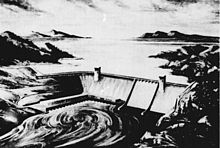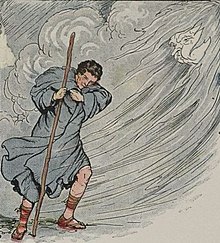Portal:Science
Science portal

Science is a systematic discipline that builds and organises knowledge in the form of testable hypotheses and predictions about the universe. Modern science is typically divided into two or three major branches: the natural sciences (e.g., physics, chemistry, and biology), which study the physical world; and the behavioural sciences (e.g., economics, psychology, and sociology), which study individuals and societies. The formal sciences (e.g., logic, mathematics, and theoretical computer science), which study formal systems governed by axioms and rules, are sometimes described as being sciences as well; however, they are often regarded as a separate field because they rely on deductive reasoning instead of the scientific method or empirical evidence as their main methodology. Applied sciences are disciplines that use scientific knowledge for practical purposes, such as engineering and medicine. (Full article...)
Featured article -
Featured pictures
Vital articles
Life is a quality that distinguishes matter that has biological processes, such as signaling and self-sustaining processes, from matter that does not. It is defined descriptively by the capacity for homeostasis, organisation, metabolism, growth, adaptation, response to stimuli, and reproduction. All life over time eventually reaches a state of death, and none is immortal. Many philosophical definitions of living systems have been proposed, such as self-organizing systems. Viruses in particular make definition difficult as they replicate only in host cells. Life exists all over the Earth in air, water, and soil, with many ecosystems forming the biosphere. Some of these are harsh environments occupied only by extremophiles. (Full article...)
Did you know...
- ... that according to The Encyclopedia of Science Fiction, the 1913 Polish novel The Cross and the Crescent is "perhaps the first example" of the genre of military science fiction in Polish literature?
- ... that the calling patterns of the Japanese tree frog have been used in wireless network design, furthering an area of science known as swarm intelligence?
- ... that Brian Stableford blamed the cancellation of the follow-up to his 2006 book Science Fact and Science Fiction: An Encyclopedia on the availability of information online?
- ... that the 1827 novel A Voyage to the Moon contains the first use of anti-gravity for space travel in science fiction?
- ... that a poem by Moses da Rieti includes an encyclopedia of the sciences, a Jewish paradise fantasy, and a post-biblical history of Jewish literature?
- ... that Science Park station was built despite the objections of the operating agency?
Get involved
| This portal needs to be updated. Please help update this portal to reflect recent events or newly available information. Relevant discussion may be found on the talk page. |

|

|
Science News
- 16 January 2025 – 2025 in spaceflight
- Blue Origin launches its New Glenn rocket for the first time from Cape Canaveral Space Force Station in Florida, United States. The rocket's second stage, carrying a prototype Blue Ring spacecraft, successfully reaches a geocentric orbit, but its reusable first stage is lost during landing. (CNN)
- The twin satellites SDX01 and SDX02 of the SpaDeX mission, launched in December by the Indian Space Research Organisation, successfully conduct India's first spacecraft docking, with India becoming the fourth country to successfully dock a spacecraft after the United States, Russia, and China. (BBC News)
- SpaceX launches its seventh test flight of the Starship launch vehicle, with an improved second stage, at Starbase in Texas, United States. The first stage is successfully caught by the launch tower but the second stage breaks up shortly before engine shutdown. (CNBC)
- 2 January 2025 – 2025 in paleontology, Dinosaur finds in the United Kingdom
- The largest site of dinosaur footprints of the Cetiosaurus and Megalosaurus dating back to the Middle Jurassic Bathonian stage 166 million years ago is discovered at a quarry in Oxfordshire, England, United Kingdom. (BBC News)
- 25 December 2024 – 2024 in archosaur paleontology
- Scientists confirm the discovery of the Alpkarakush kyrgyzicus dinosaur species in Kyrgyzstan, the first theropod from the Jurassic period to be discovered in Central Asia. (Tempo)
- 23 December 2024 –
- A team of scientists at the North-Eastern Federal University in Sakha Republic, Russia, unveil the highly preserved remains of a 50,000-year-old female juvenile woolly mammoth named Yana. The researchers say Yana was roughly about one-year-old when she died, likely from drowning, and was discovered in the Batagaika crater by locals. (BBC News)
Related portals
Top 10 WikiProject Science Popular articles of the month -
Categories -



































































